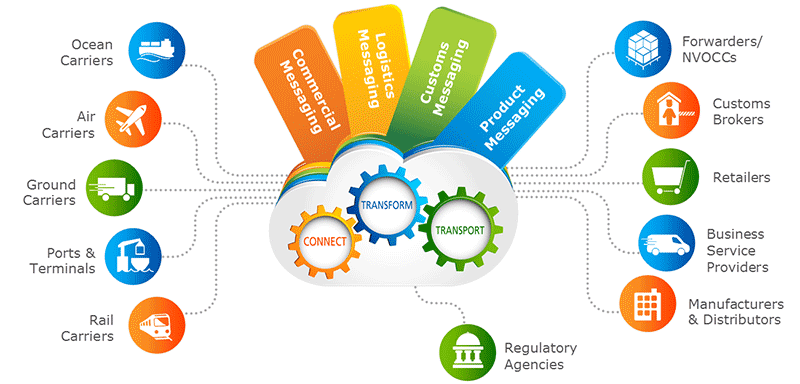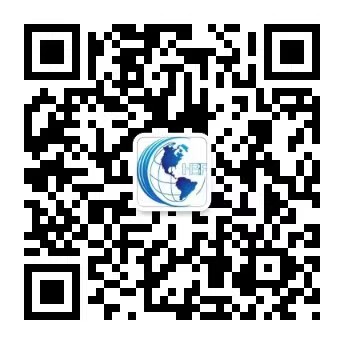印尼斋月临近,中国企业需提前布局应对挑战与机遇
随着3月的到来,印尼即将迎来一年中最重要的宗教节日——斋月(Ramadan)。对于计划进入印尼市场或已在当地开展业务的中国企业来说,斋月不仅是了解当地文化习俗的重要契机,更是深刻影响当地社会运作和商业活动的关键时期。本文将从斋月文化、社会影响、业务调整及应对策略入手,为企业提供实用建议,助力提前规划,规避风险。
一、印尼斋月的文化与习俗
斋月是伊斯兰教历的重要时期,具有深厚的宗教和文化意义。印尼作为全球穆斯林人口最多的国家,其2.8亿总人口中有87%(约2.3亿)为穆斯林。斋月期间,穆斯林从日出至日落禁食、祈祷与反思,体现其虔诚的信仰。斋月结束后,迎来伊斯兰教历10月1日的开斋节,这是印尼穆斯林最为重要的传统庆典。
斋月期间,穆斯林成年男女(男11岁,女9岁)需履行斋戒义务,禁止饮食、抽烟,并戒绝丑行秽语,克制欲念。老人、儿童、病人以及怀孕、哺乳期的妇女和重体力劳动者可以免除斋戒。人们通常在凌晨4点前起床进行沐浴和祈祷,傍晚6点左右,随着宣礼声响起,斋戒结束,人们用饮料和甜食开斋,并进行昏礼祷告。
2025年的斋月预计从3月1日开始,持续到3月29日,共计29天。开斋节定于3月30日。宗教部预计斋月长假为3月29日至4月6日,共计10天,包括周末假期、法定假期和集体休假。斋月期间,社会节奏放缓,夜间经济活动活跃,集市、餐饮等行业需求激增。
二、斋月对印尼社会与经济的影响
1. 工作时间缩短
政府及企业普遍调整作息,每日工作时间缩短,部分机构下午提前关闭。物流效率下降,运输公司运力减少,港口清关速度可能延迟。
2. 消费市场增长
根据TikTok Shop 2023年的表现,预计今年东南亚地区在斋月期间的电子商务总交易额(GMV)将实现126%的增长。印尼作为东南亚的消费引擎,市场表现尤为突出。YouGov最新调研显示,88%的印尼消费者已提前制定斋月购物计划,超过半数(53%)的消费者计划将政府补贴全部用于斋月购物。
3. 社会活动重心转移
商务会议减少,宗教与家庭活动优先。政府部门、银行等对外服务效率降低。
三、具体受影响的业务领域
1. 公司注册审批
斋月期间,印尼政府部门可能调整工作时间,导致公司注册审批等行政流程延长。企业需关注最新政策要求,准备齐全资料。
2. 签证办理
受开斋节等宗教节日影响,印尼使馆可能闭馆或缩短工作时间,导致签证办理时间延长。计划前往印尼的外籍人员需提前规划行程,尽早办理签证。
3. 银行业务
银行可能调整营业时间,缩短服务时间。建议企业提前了解银行营业时间安排,合理安排业务办理时间。
4. 物流运输
政府机关、海关、港口和货代等企业工作时间缩短,物流运输效率下降。建议企业预留足够时间,关注物流动态。
5. 政府部门运作
政府部门可能调整工作时间和节奏,部分行政流程办理时间延长。企业需保持耐心和灵活性,关注最新政策动态。
四、出海印尼企业的应对策略
1. 时间规划与业务安排
企业应提前规划,避开斋月高峰期处理政务和物流等时效敏感业务,合理安排工作进度,预留足够时间应对潜在延期。
2. 政策监控与合规经营
密切关注印尼政策动态和市场变化,及时调整业务策略,确保企业运营符合当地法规,特别是斋月期间可能出现的特殊政策变动。
3. 沟通与协调
加强与政府部门和商业伙伴的沟通,尊重当地文化和宗教习俗,避免在日间安排会议或催办事项,提供灵活的办公政策以提高本地员工的积极性。
4. 供应链优化
选择与本地物流商合作,提前锁定舱位或选择空运,应对斋月期间的物流瓶颈。关注清关政策变化和运输时效,确保产品按时交付。
5. 文化尊重与市场适应
企业在出海印尼前需深入了解当地文化和习俗,尊重宗教信仰和生活习惯,与当地员工和客户建立良好关系。避免在公共场所进食、饮水或吸烟,以免引起误解和冲突。
6. 消费红利把握
针对斋月期间的特殊需求,企业可推出礼盒套装、家居用品等产品,并通过TikTok等社交媒体平台进行本土化营销,吸引穆斯林消费者。
7. 库存管理与需求预测
根据市场需求变化,提前做好库存规划,避免库存积压或缺货。密切关注销售趋势,灵活调整库存以应对市场波动。
总结
斋月作为印尼最重要的宗教节日之一,对社会运作和经济发展产生了深远影响。通过提前规划和灵活应对,出海印尼的企业不仅能有效应对斋月带来的挑战,还能把握这一时期的市场机遇,促进业务持续发展。
Indonesia's Ramadan Approaches: How Can Chinese Enterprises Navigate Challenges and Seize Opportunities?
As March approaches, Indonesia is about to enter its most important religious festival of the year—Ramadan. For Chinese enterprises planning to enter the Indonesian market or already operating there, Ramadan is not only a significant cultural event but also a period that profoundly impacts local social operations and business activities. This article will provide insights into Ramadan culture, its social impact, adjustments in business operations, and strategies to help enterprises plan ahead and avoid risks.
I. Culture and Customs of Ramadan in Indonesia
Ramadan is a significant period in the Islamic calendar, with deep religious and cultural significance. As the country with the largest Muslim population in the world, Indonesia has approximately 230 million Muslims out of its total population of 280 million (87%). During Ramadan, Muslims fast from sunrise to sunset, engaging in prayer and reflection to demonstrate their devotion. The end of Ramadan is marked by Eid al-Fitr, which falls on the first day of the 10th month of the Islamic calendar and is the most important traditional celebration for Indonesian Muslims.
During Ramadan, Muslim men (from the age of 11) and women (from the age of 9) are required to fast, abstaining from eating, drinking, smoking, and refraining from inappropriate behavior and speech, as well as controlling their desires. However, the elderly, children, the sick, pregnant and nursing women, and those engaged in heavy physical labor are exempt from fasting. Typically, people wake up before 4 a.m. to bathe and pray. At around 6 p.m., with the call to prayer, the fast is broken with drinks and sweets, followed by the evening prayer.
The Ramadan period in 2025 is expected to last from March 1 to March 29, totaling 29 days, with Eid al-Fitr on March 30. The Ministry of Religion has announced a 10-day holiday from March 29 to April 6, including weekends, public holidays, and collective leave. During this period, the social atmosphere is characterized by a slower pace during the day and more active economic activities at night, such as markets and catering. There is also a surge in consumer and religious demands.
II. Impact of Ramadan on Indonesian Society and Economy
1. Reduced Working Hours
The government and businesses generally adjust working hours, with shorter daily working times and some institutions closing earlier in the afternoon. Logistics efficiency decreases as transportation companies reduce their capacity, and customs clearance at ports may be delayed.
2. Explosive Growth in Consumer Markets
Based on the strong performance of TikTok Shop in 2023, it is predicted that the total merchandise value (GMV) of e-commerce in the Southeast Asian region will see an astonishing 126% increase during Ramadan this year. Indonesia, as the consumption engine of Southeast Asia, stands out in this trend. According to the latest YouGov survey, Indonesian consumers have shown unprecedented enthusiasm for the Ramadan shopping season: 88% of respondents have already planned their shopping in advance, preparing for the consumption boom during Ramadan. Notably, over half (53%) of consumers said they plan to use all government subsidies for Ramadan shopping, reflecting the high importance and anticipation local people place on this traditional festival.
3. Shift in Social Activities
Business meetings are reduced, with priority given to religious and family activities. The efficiency of external services from government departments and banks is also lowered.
III. Specific Business Areas Affected
1. Company Registration and Approval
During Ramadan, Indonesian government departments may adjust working hours, leading to extended processing times for administrative procedures such as company registration and approval. Enterprises need to pay attention to the latest policy requirements and prepare complete documentation.
2. Visa Processing
Affected by religious holidays like Eid al-Fitr, Indonesian embassies may close or shorten working hours, leading to extended visa processing times. Foreign personnel planning to travel to Indonesia should plan their trips in advance and apply for visas as early as possible.
3. Banking Services
Banks may adjust their business hours, shortening service times. It is recommended that enterprises and individuals who need to handle banking services understand the banks' business hours in advance and arrange their business processing times reasonably.
4. Logistics and Transportation
Government agencies, customs, ports, and freight forwarders may shorten working hours, reducing logistics efficiency. Additionally, traffic congestion during Ramadan may extend delivery times. Enterprises should allow sufficient time and monitor logistics dynamics when arranging transportation.
5. Government Department Operations
Government departments may adjust working hours and rhythms, extending the processing times for some administrative procedures. Enterprises need to be patient and flexible when dealing with government departments and stay updated on the latest policy dynamics.
IV. Strategies for Chinese Enterprises Operating in Indonesia
1. Time Management and Business Planning
Enterprises should plan ahead to avoid handling time-sensitive government and logistics operations during the peak of Ramadan. They should arrange work progress reasonably and allow sufficient time for potential delays to ensure smooth business operations.
2. Policy Monitoring and Compliance
Enterprises should closely monitor policy dynamics and market changes in Indonesia, adjust business strategies and market layouts in a timely manner, and ensure compliance with local regulations, especially any special policy changes that may occur during Ramadan.
3. Communication and Coordination
Strengthen communication with government departments and business partners to ensure smooth operations. Respect local culture and religious customs, avoid scheduling meetings or pressing matters during the day, and provide flexible working policies to boost local employees' morale.
4. Supply Chain Optimization
Enterprises can collaborate with local logistics providers, book cargo space in advance, or opt for air freight to address potential logistics bottlenecks during Ramadan. They should also pay attention to changes in customs policies and delivery times to ensure timely product delivery.
5. Cultural Respect and Market Adaptation
Enterprises need to understand local culture and customs before entering the Indonesian market, respect religious beliefs and lifestyle habits, and build good relationships with local employees and customers. During Ramadan, avoid eating, drinking, or smoking in public places to prevent misunderstandings and conflicts. For business activities, avoid religious holidays and peak traffic times to ensure smooth operations.
6. Seizing Consumption Opportunities
Enterprises can launch special products such as gift boxes and home goods tailored to the unique demands of Ramadan and promote them through social media platforms like TikTok to attract Muslim consumers.
7. Inventory Management and Demand Forecasting
Enterprises should plan inventory in advance based on market demand changes to avoid overstocking or stockouts during Ramadan. They should also closely monitor sales trends and adjust inventory flexibly to cope with potential market fluctuations.
Summary
As one of the most important religious festivals in Indonesia, Ramadan has a profound impact on social operations and economic development. By planning ahead and being flexible, Chinese enterprises operating in Indonesia can not only effectively navigate the challenges posed by Ramadan but also seize market opportunities to promote sustainable business growth.







